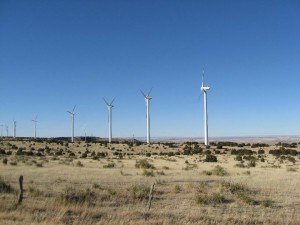**This article is not a substitute for the advice of an attorney.**
Duke Energy Corp. recently pled guilty under the Migratory Bird Treaty Act to killing eagles and other birds at two Wyoming wind farms. Specifically, the company pled guilty to killing 14 eagles and 149 other birds at its wind farms located outside of Casper from 2009 to 2013. This case marked the first prosecution by the United States Department of Justice of a wind energy company for bird deaths pursuant to the Migratory Bird Treaty Act, passed in 1918, which makes the killing of over 1,000 species of birds a federal offense.
As part of the plea, Duke agreed to pay a $1 million fine for violating the Act and will be on five years probation. Additionally, the company will continue to use field biologists to identify eagles and shut down wind turbines when eagles are close by. Duke will also install new radar technology to assist in identifying birds and will report all bird deaths to the government. Finally, Duke will apply for a federal “eagle take permit” and draft a plan to reduce bird deaths at its Wyoming wind farms.
This settlement has generated comment from both sides of the issue. The American Wind Energy Association issued a statement claiming that the wind energy impact on birds is insignificant and claiming that a 2009 study found that wind energy causes less harm to birds than other energy sources. The president of the American Bird Conservancy argued that “wind energy is not green if it is killing hundreds of thousands of birds.”
Although no other prosecutions involving bird deaths at wind farms have occurred to date, reports claim that 18 cases are currently being investigated by the U.S. Fish and Wildlife Department and that approximately 6 cases have been referred to the Justice Department for potential prosecution. Other energy producers have previously faced prosecution under this act, including oil companies such as BP, which was fined $100 million for harming birds in the 2010 Gulf oil spill, and coal mining companies, such as PacifiCorp, which paid $10.5 million in fines for electrocuting birds at substations in 2009.













